In most cases — no, you don’t need BCAA supplements if you’re already taking a high-quality protein powder.
Whey, casein, and even many plant-based proteins already contain plenty of leucine, isoleucine, and valine — the three branched-chain amino acids (BCAAs) your body needs to support muscle recovery and growth.
That said, BCAAs might be helpful in a few specific scenarios — like fasted training, aggressive calorie deficits, or incomplete protein sources (such as in vegan diets).
Table of contents
What Are BCAAs and What Do They Do?
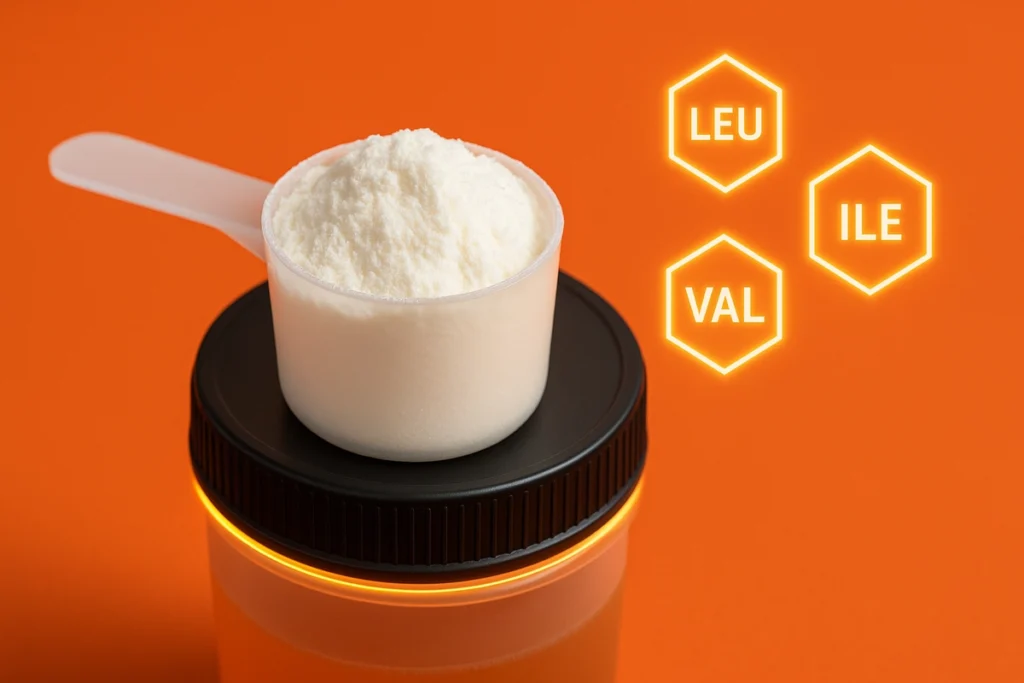
BCAAs are three essential amino acids — leucine, isoleucine, and valine — crucial for muscle protein synthesis and reducing muscle breakdown.
Leucine, in particular, plays a key role in switching on the muscle-building process.
Many lifters use BCAAs to reduce soreness, improve recovery, and train longer — but they often don’t realize their protein shake already includes BCAAs.
Your Protein Powder Already Covers BCAAs
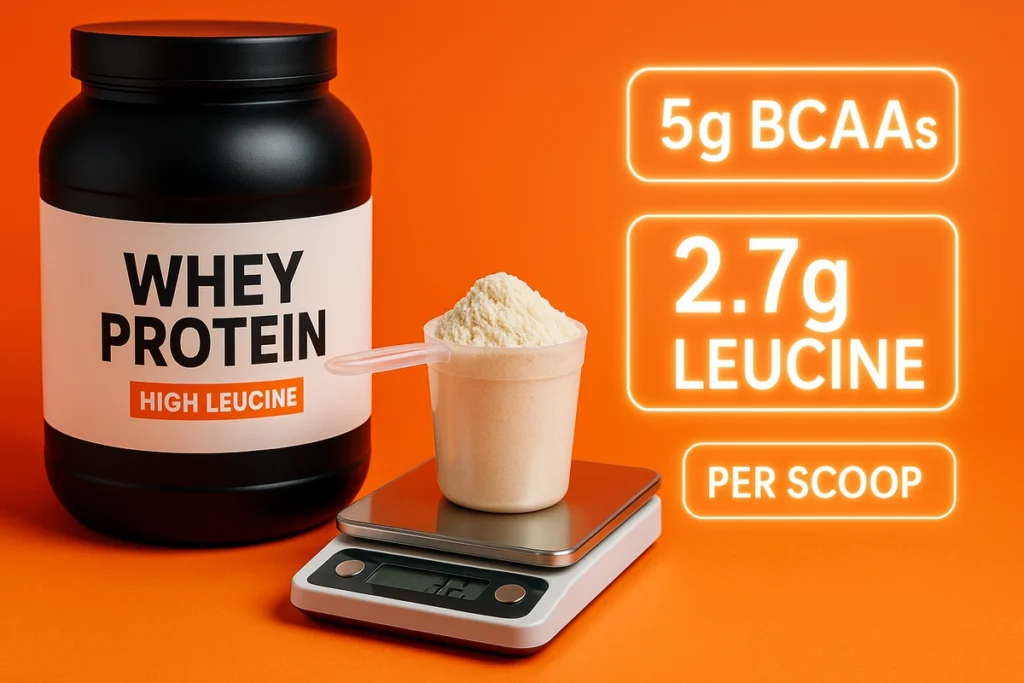
One scoop of whey protein typically provides 5–6g of BCAAs, including enough leucine to stimulate muscle growth.
Even most plant-based blends now include complete amino acid profiles or are fortified to match the effectiveness of animal-based proteins.
Unless your protein intake is low or unbalanced, you’re already covered.
When BCAAs Might Be Useful
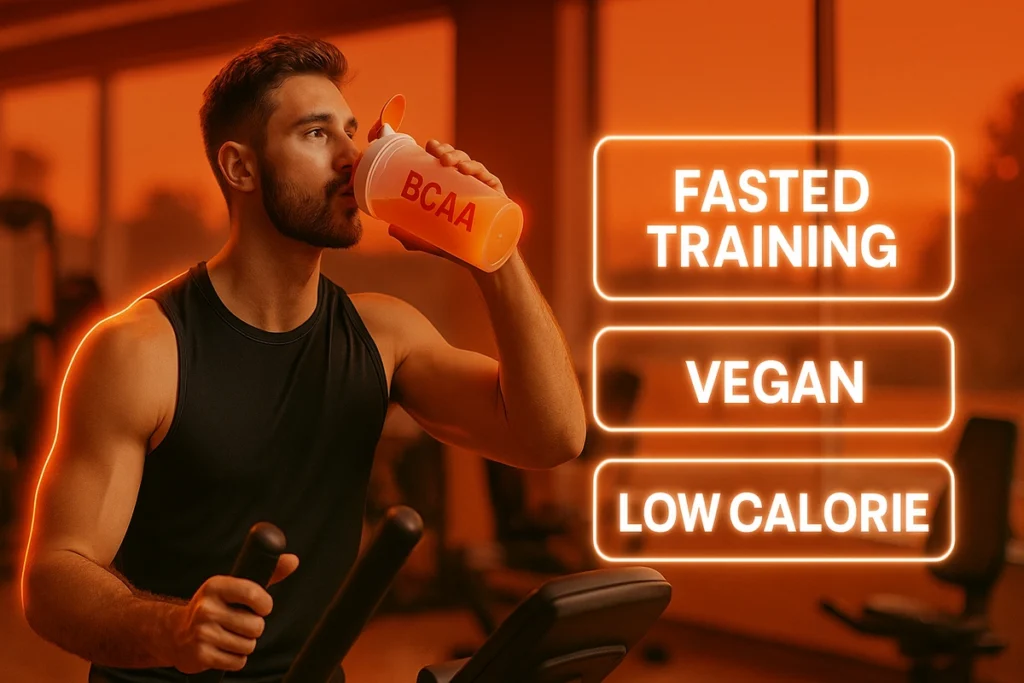
Even if you use protein powder, there are situations where BCAAs might help:
▸ Fasted Training
If you train early with no meal beforehand, BCAAs can help reduce muscle breakdown. I’ve personally used them during fasted cardio while cutting, and noticed less soreness.
▸ Vegan Diets
One of my clients, Sophie, follows a strict plant-based diet. We added BCAAs pre-workout to support her recovery due to incomplete protein from whole food sources.
▸ Aggressive Cuts or Low-Calorie Diets
During intense fat loss phases, BCAAs can help preserve muscle without adding calories. Carlos, a client doing a fasted circuit routine, benefited from sipping BCAAs during workouts.
▸ Long or High-Volume Workouts
For endurance athletes or long gym sessions, BCAAs may help delay fatigue. I had a triathlete client mix BCAAs with electrolytes during 2+ hour rides — and it worked well.
When You Can Skip BCAAs Entirely
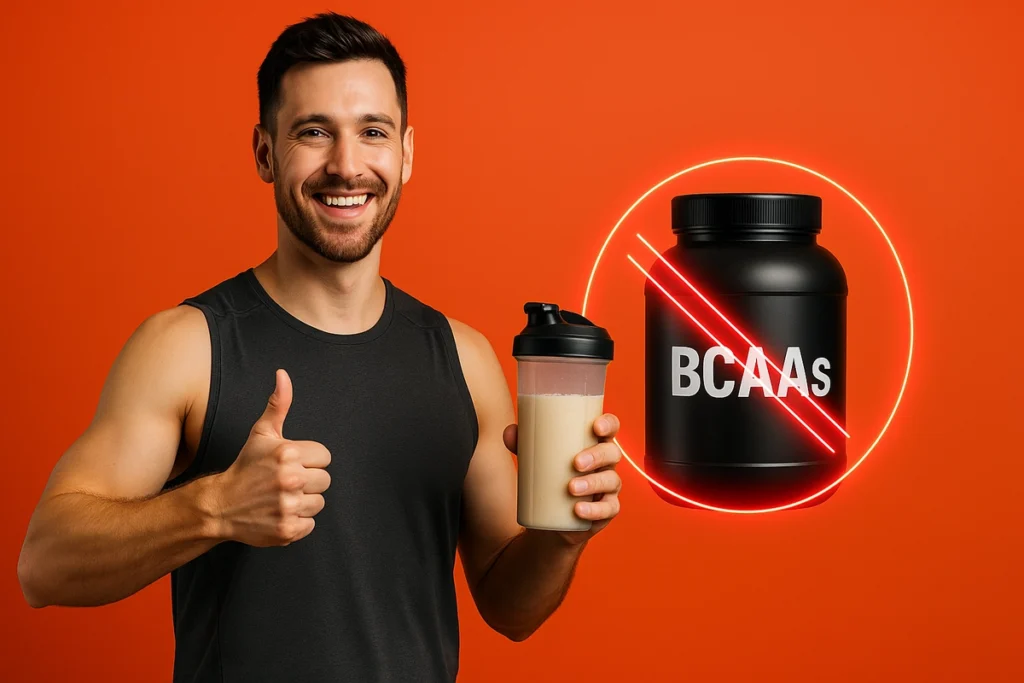
If any of these sound like you, save your money:
- You consume enough protein daily (1.6–2.2g/kg body weight)
- You use a complete protein powder (like whey or fortified plant blends)
- You train in a fed state
- You’re not cutting aggressively
- You’d rather invest in real food, creatine, or quality sleep
One of my clients, John, was using both whey protein and BCAAs. After I explained they were redundant, he stopped the BCAAs — and noticed zero drop in recovery or progress.
Real Talk from a Coach
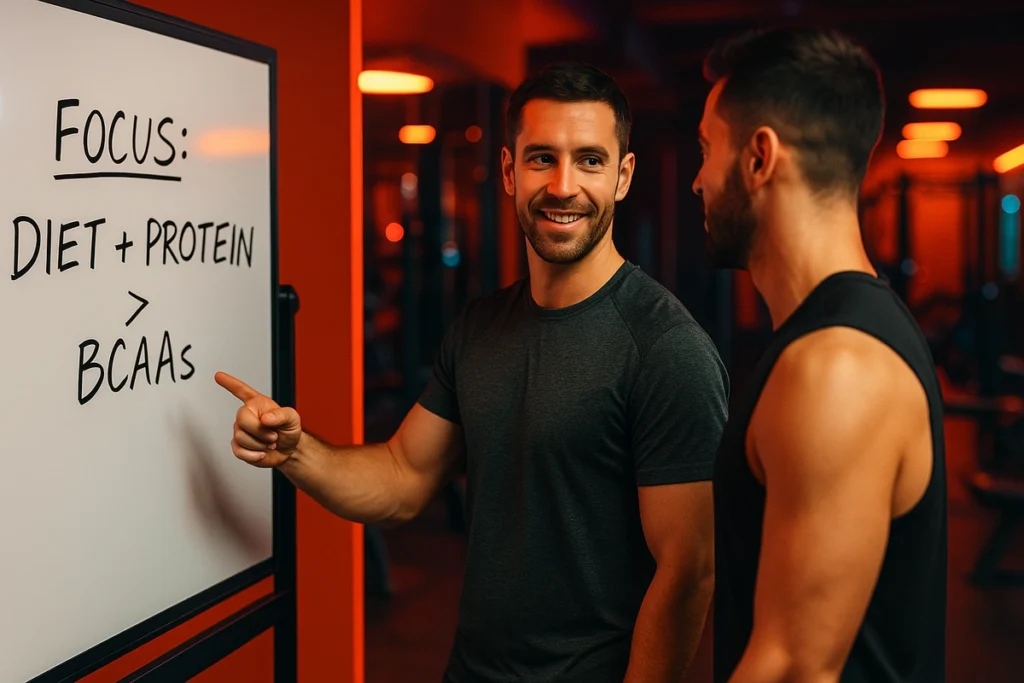
I’ve coached lifters, lifestyle clients, and athletes for over 6 years, and my stance is simple: get your protein in first. BCAAs are not harmful, but for most people, they’re a “nice to have,” not a “need to have.”
Yes, I’ve used BCAAs in fasted states, and in some client cases, they added value. But I never make them a priority supplement. Focus on total protein intake, training, and recovery — that’s where real progress comes from.
Final Verdict: Are BCAAs Worth It with Protein Powder?
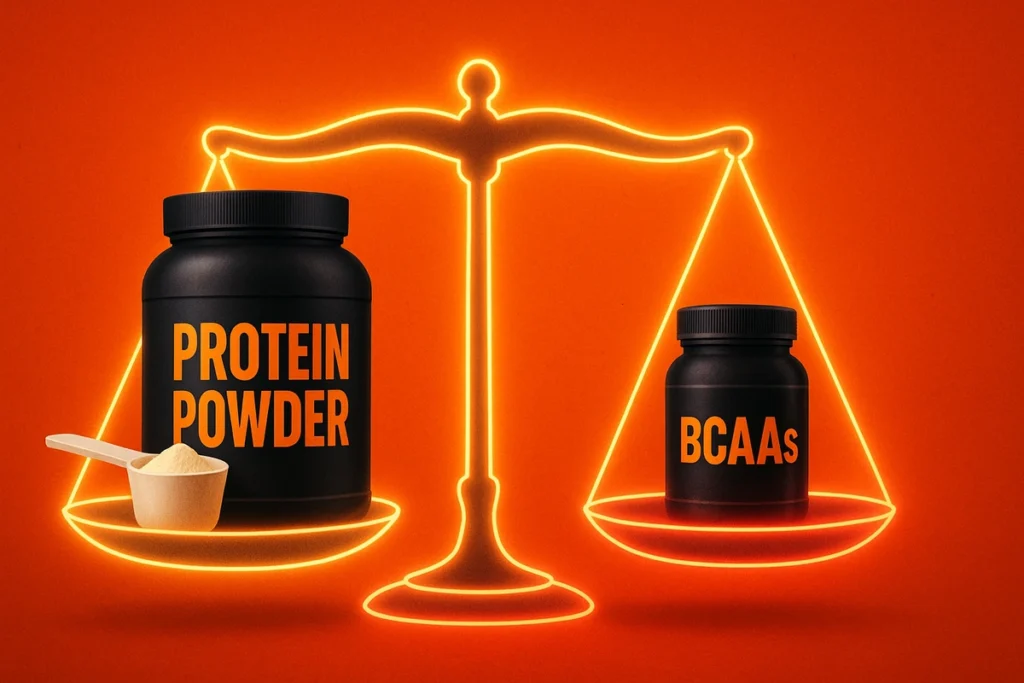
For the average gym-goer using protein powder regularly, BCAAs are unnecessary.
Your shake likely contains all the BCAAs you need — plus the other essential amino acids your body needs to actually build muscle.
Use BCAAs strategically if:
- You train fasted
- You’re vegan and lack complete proteins
- You’re cutting hard and need to protect muscle
- You’re training long hours or in extreme conditions
Otherwise, focus on your protein shake, meals, and consistent effort. That’s what drives results.
No fluff. No hype. Just what works.

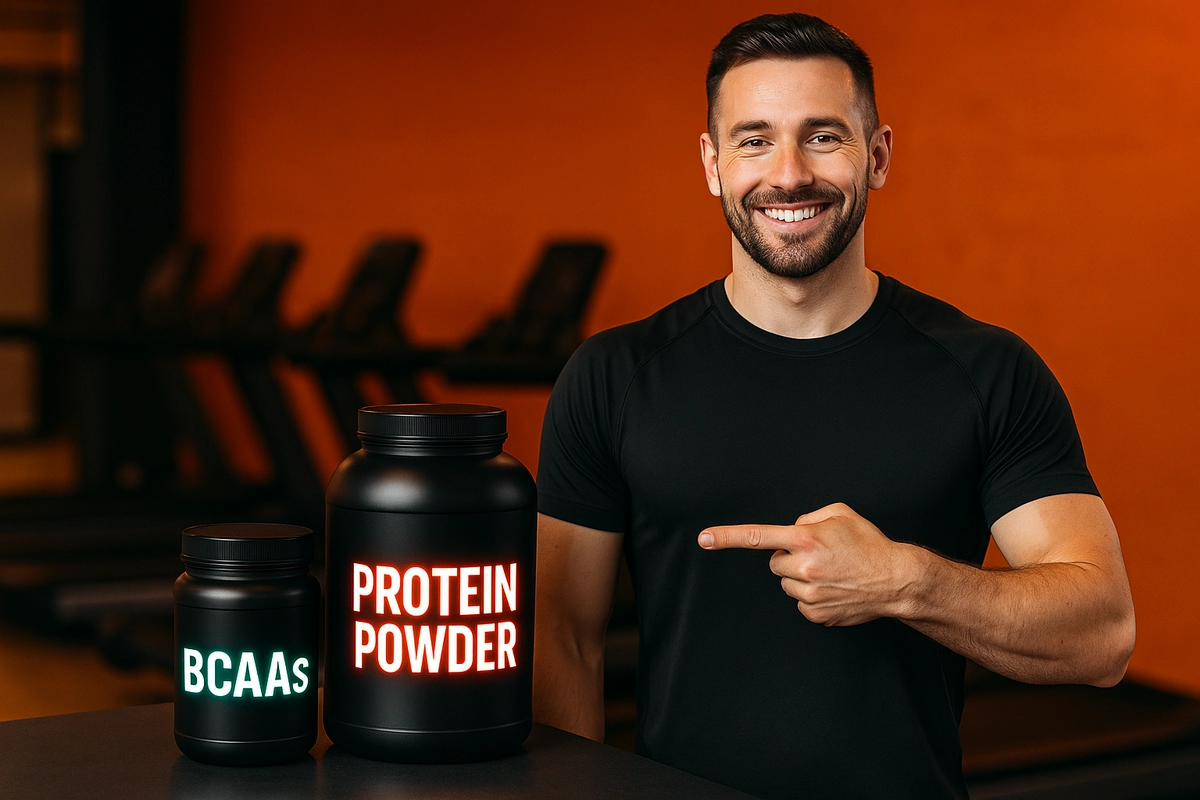

Leave a Reply